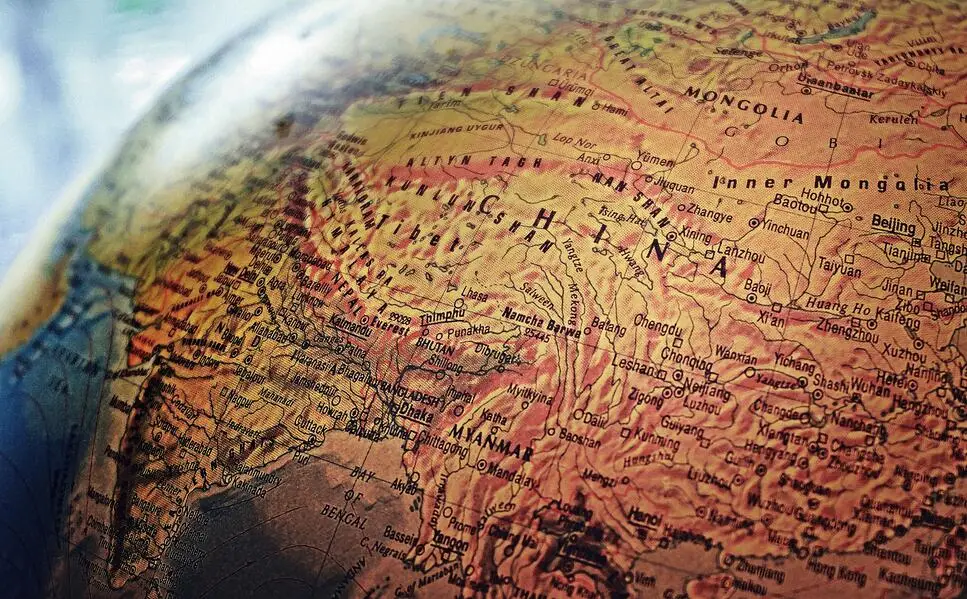WASHINGTON – The head of the Southern Baptist Ethics and Religious Liberty Commission has applauded the Trump administration’s new restrictions on individuals and entities responsible for or implicated in religious repression in western China.

The Department of State announced visa restrictions Tuesday, Oct. 8, on Chinese government and Communist Party officials considered to be responsible for or complicit in the persecution of Uighur Muslims and members of other minority Muslim groups in Xinjiang, also known as the Xinjiang Uighur Autonomous Region. The action came a day after the Department of Commerce disclosed it would constrict exports to 28 Chinese government and business organizations implicated in the repressive campaign in Xinjiang.
Russell Moore, the ERLC’s president, called the news “welcome and sorely needed.”
“China’s reign of terror on religious minorities must be met with a vigorous response from the United States,” Moore said in an ERLC news release, adding the restrictions on those “responsible for the persecution of religious minorities are just and wise.”
He prays the United States “will continue to act until the day that the Chinese Communist Party no longer terrorizes religious people for believing and living out their deepest held convictions,” Moore said.
The administration’s announcements followed by about two weeks a Sept. 22 column by Moore in The Wall Street Journal in which he called for the United States to challenge China morally, not just economically and militarily.
In the column, he said Americans “cannot ignore the Chinese Communist Party’s shredding of human rights and religious freedom” while a debate continues regarding the proper response to the economic and military dangers presented by China.
President Trump has utilized tariffs against China in his administration’s trade relationship with the world’s most populous country.
“The U.S. should counter China with a resolute commitment to advance not only economic fairness, but also human rights and freedom of conscience,” Moore wrote. China “is using everything from concentration camps to facial-recognition technology to ensure that the only worship and belief allowed is that which submits to Chinese Communist orthodoxy. People who resist this mandate are ruthlessly plowed over.”
Moore pointed to China’s current “reign of terror” against the Uighur Muslims, as well as other religious minorities, including Christians, Tibetan Buddhists and Falun Gong.
Among the policy steps Moore recommended in the column was levying financial penalties against Chinese government officials responsible for the persecution.
Messengers to this year’s annual meeting of the Southern Baptist Convention passed a resolution condemning China’s Communist Party, as well as North Korea’s regime, for “extreme religious persecution and flagrant human rights violations.” The resolution also urged the United States and the international community to make religious freedom a “top priority.”
Bob Fu – president of the Christian human rights organization ChinaAid – also commended the administration’s restrictions, describing both as “major concrete actions in advancing religious freedom in China.”
In announcing his department’s steps, Secretary of State Mike Pompeo said Beijing “has instituted a highly repressive campaign … [in Xinjiang] that includes mass detentions in internment camps; pervasive, high-tech surveillance; draconian controls on expressions of cultural and religious identities; and coercion of individuals to return from abroad to an often perilous fate in China.”
The U.S. calls on the Chinese government, Pompeo said in a written statement, “to immediately end its campaign of repression in Xinjiang, release all those arbitrarily detained, and cease efforts to coerce members of Chinese Muslim minority groups residing abroad to return to China to face an uncertain fate.”
Wilbur Ross, Secretary of Commerce, said the federal government and the department “cannot and will not tolerate the brutal suppression of ethnic minorities within China. This action will ensure that our technologies, fostered in an environment of individual liberty and free enterprise, are not used to repress defenseless minority populations.”
According to Commerce, export limitations will be placed on the Chinese government’s Public Security Bureau, 19 subsidiaries and eight commercial organizations.
Written by Baptist Press, the official news service of the Southern Baptist Convention.

